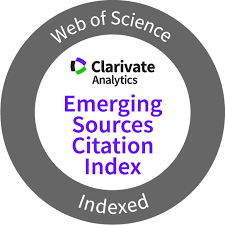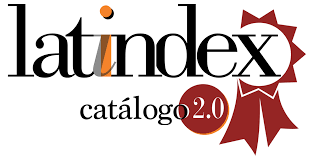Reasons to follow travel influencers on social media: a study with Instagram users
DOI:
https://doi.org/10.5783/revrrpp.v13i26.844Keywords:
public relations, persuasive communication, influencer, Instagram, motivationsAbstract
Social networks have become a fundamental public relations tool. It is in this context that the figure of the influencer appears. In recent years, more and more people are choosing to travel more and more, and they like to share their trips through social media. So much so that they are known as travel influencers. Instagram plays a fundamental role in promoting the travel and tourism industry, standing out as an essential tool in public relations for travel influencers. The relationships that travel influencers establish with their audiences, in the digital environment, reinforce the feeling of recognition and trust, and can influence the image and social reputation of a brand and the attitude of undertaking a trip to the advertised destination. Therefore, in a competitive environment such as the tourism sector, it is important to determine the reasons that lead these audiences to follow travel influencers. In view of this, the objective of this work is to determine the reasons why Spanish and French Instagram users follow travel influencers on this platform. It was considered relevant to investigate this subject in view of the evolution of social media and the influence generated by travel influencers on the tourism decisions of Instagram users. The study has a quali-quantitative approach. First, in-depth interviews were conducted with people who follow travel influencers. To analyse the results of the in-depth interviews, we used the technique of thematic analysis, as we wanted to emphasize the dimension that deals with what is being said in the data obtained. Subsequently, a questionnaire was applied to 120 Spanish and 75 French respondents. Basic descriptive statistics were used to analyse the results of the questionnaires. It was found that travel influencers boast high credibility, as their audiences trust their advice. The results showed that users value the quality of the content shared and the lifestyle and personality of the influencers. Travel influencers were found to be a source of inspiration and motivation for their followers, who want to go to the same place as them. As for the influence that travel influencers generate in their community, it is worth noting that, in reference to Spanish users, the recommendations of travel influencers have influenced their decisions, as 96% of the sample has wanted to travel somewhere because they have seen it in the content of an influencer. In contrast, French users have not been influenced by travel influencers, although they have been inspired by them. Therefore, French travel influencers are not a source of inspiration because most of their followers have not taken the plunge to visit a place that was recommended by the influencer. With this research we have been able to confirm that the influence of social media, specifically Instagram, has had a great impact on the tourist decisions of users to visit new tourist sites. This platform is based on photography and that is why it has a great impact on tourism, since using images, many experiences and sensations can be transmitted. The content published by travel influencers provokes curiosity in their followers and the desire to go to that same place, so we can conclude that Instagram is a tool that encourages other people to visit that place. For future research, it is recommended to analyse other types of sectors in which influencers also play a very important role, among which the beauty, make-up and/or decoration sectors are gaining importance.
Downloads
References
Abuin-Penas, J., Míguez-González, M.-I., & Martínez-Patino, M.-J. (2020). Instagram como herramienta de relaciones públicas para los deportistas de élite españoles. Revista Internacional de Relaciones Públicas, 10(19), 91-110. https://doi.org/10.5783/RIRP-19-2020-06-91-110
Agatha, G., Susilo, D., & Juliadi, R. (2023). How did the company respond to reviews on twitter? Es teh indonesia’ case. Jurnal Studi Komunikasi (Indonesian Journal of Communications Studies), 7(1), 105-133. https://doi.org/10.25139/jsk.v7i1.6150
Bass, B. M., & Riggio, R. E. (2006). Transformational leadership (0 ed.). Psychology Press. https://doi.org/10.4324/9781410617095
Belanche, D., Casaló, L. V., Flavián, M., & Ibáñez-Sánchez, S. (2021). Building influencers’ credibility on Instagram: Effects on followers’ attitudes and behavioral responses toward the influencer. Journal of Retailing and Consumer Services, 61, 102585. https://doi.org/10.1016/j.jretconser.2021.102585
Blaer, M., Frost, W., & Laing, J. (2020). The future of travel writing: Interactivity, personal branding and power. Tourism Management, 77, 104009. https://doi.org/10.1016/j.tourman.2019.104009
Book, L. A., & Tanford, S. (2019). Measuring social influence from online traveler reviews. Journal of Hospitality and Tourism Insights, 3(1), 54-72. https://doi.org/10.1108/JHTI-06-2019-0080
Capriotti, P., Oliveira, A., & Carretón, C. (2023). A model for assessing the active presence of institutions on social media: application to universities worldwide. Journal of Marketing for Higher Education, 1-21. https://doi.org/10.1080/08841241.2023.2166188
Casaló, L. V., Flavián, C., & Ibáñez-Sánchez, S. (2020). Influencers on Instagram: Antecedents and consequences of opinion leadership. Journal of Business Research, 117, 510-519. https://doi.org/10.1016/j.jbusres.2018.07.005
Castelló Martínez, A., Del Pino Romero, C., & Tur Viñes, V. (2016). Estrategias de contenido con famosos en marcas dirigidas a público adolescente. Revista ICONO14 Revista científica de Comunicación y Tecnologías emergentes, 14(1), 123-154. https://doi.org/10.7195/ri14.v14i1.883
Castelló-Martínez, A., & Barrilero-Carpio, C. (2021). La estrategia de contenidos en YouTube de los principales anunciantes españoles. Revista Internacional de Investigación en Comunicación aDResearch ESIC, 25(25), 44-69. https://doi.org/10.7263/adresic-025-03
Cavallaro, M., & Fidell, L. (1994). Basic descriptive statistics: Commonly encountered terms and examples. American Journal of EEG Technology, 34(3), 138-152. https://doi.org/10.1080/00029238.1994.11080483
Chen, W.-K., Silaban, P. H., Hutagalung, W. E., & Silalahi, A. D. K. (2022). How instagram influencers contribute to consumer travel decision: Insights from SEM and fsQCA. Emerging Science Journal, 7(1), 16-37. https://doi.org/10.28991/ESJ-2023-07-01-02
Cheng, Y. (2020). The social-mediated crisis communication research: Revisiting dialogue between organizations and publics in crises of China. Public Relations Review, 46(1), 101769. https://doi.org/10.1016/j.pubrev.2019.04.003
Costa, W. F., De Albuquerque Tito, A. L., Moreira Brumatti, P. N., & De Oliveira Alexandre, M. L. (2018). Uso de instrumentos de coleta de dados em pesquisa qualitativa: Um estudo em produções científicas de turismo. Turismo - Visão e Ação, 20(1), 02. https://doi.org/10.14210/rtva.v20n1.p02-28
Creswell, J. W. (1999). Mixed-method research: Introduction and application. In Handbook of Educational Policy (pp. 455-472). Elsevier. https://doi.org/10.1016/B978-012174698-8/50045-X
Duffy, A. (2019). If I say you’re authentic, then you’re authentic: Power and privilege revealed in travel blogs. Tourist Studies, 19(4), 569-584. https://doi.org/10.1177/1468797619865387
Duffy, A., & Kang, H. Y. P. (2020). Follow me, I’m famous: Travel bloggers’ self-mediated performances of everyday exoticism. Media, Culture & Society, 42(2), 172-190. https://doi.org/10.1177/0163443719853503
Dwyer, L., Gill, A., & Seetaram, N. (Eds.). (2012). Handbook of research methods in tourism: Quantitative and qualitative approaches. Edward Elgar Publishing.
Egido Piqueras, M. (2023). La comunicación persuasiva como estrategia de neuro-comunicación para las relaciones públicas. Miguel Hernández Communication Journal, (14), 339-360.
Ho, C.-I., & Lee, P.-C. (2015). Are blogs still effective to maintain customer relationships?: An empirical study on the travel industry. Journal of Hospitality and Tourism Technology, 6(1), 5-25. https://doi.org/10.1108/JHTT-01-2015-0005
Hu, L., Min, Q., Han, S., & Liu, Z. (2020). Understanding followers’ stickiness to digital influencers: The effect of psychological responses. International Journal of Information Management, 54, 102169. https://doi.org/10.1016/j.ijinfomgt.2020.102169
Hudders, L., De Jans, S., & De Veirman, M. (2021). The commercialization of social media stars: A literature review and conceptual framework on the strategic use of social media influencers. International Journal of Advertising, 40(3), 327-375. https://doi.org/10.1080/02650487.2020.1836925
IAB Spain. (2022, mayo 18). Lab Spain presenta el ‘estudio de redes sociales 2022’. IAB Spain. Obtenido de https://iabspain.es/iab-spain-presenta-el-estudio-de-redes-sociales-2022/
IPMARK. (2022, mayo 18). Un 51% de españoles afirma que la publicidad en redes sociales es molesta. Obtenido de https://ipmark.com/espanoles-publicidad-redes-sociales-molesta/
Le, L. H., & Hancer, M. (2021). Using social learning theory in examining YouTube viewers’ desire to imitate travel vloggers. Journal of Hospitality and Tourism Technology, 12(3), 512-532. https://doi.org/10.1108/JHTT-08-2020-0200
Lee, C.-L., Hsiao, K.-L., & Lu, H.-P. (2015). Gender differences in antecedents and consequences of trust in an enterprise’s travel blogs. Social Behavior and Personality: An International Journal, 43(2), 269-286. https://doi.org/10.2224/sbp.2015.43.2.269
Luo, Q., & Zhong, D. (2015). Using social network analysis to explain communication characteristics of travel-related electronic word-of-mouth on social networking sites. Tourism Management, 46, 274-282. https://doi.org/10.1016/j.tourman.2014.07.007
Mack, R. W., Blose, J. E., & Bing Pan. (2008). Believe it or not: Credibility of blogs in tourism. Journal of Vacation Marketing, 14(2), 133-144. https://doi.org/10.1177/1356766707087521
Magno, F., & Cassia, F. (2018). The impact of social media influencers in tourism. Anatolia, 29(2), 288-290. https://doi.org/10.1080/13032917.2018.1476981
Mesquita, K., Ruao, T., & Andrade, J. G. (2020). Websites e páginas do Facebook das Universidades portuguesas: Novas possibilidades de interação social? Revista Internacional de Relaciones Públicas, 10(20), 135-156. https://doi.org/10.5783/RIRP-20-2020-08-135-156
Mgiba, F. M., & Nyamande, N. (2020). Persuasive influencers and the millennials: how their relationships affect brand, value, and relationship equities, and customers' intention to purchase. Journal of Contemporary Management, 17(2), 492-522. https://journals.co.za/doi/abs/10.35683/jcm19115.88
Pino-Romero, C. D., & Castelló-Martínez, A. (2017). La estrategia publicitaria basada en influencers: el caso de smartgirl by Samsung. Publicidad y Convergencia Mediática. Nuevas estrategias de comunicación persuasiva. Link
Sánchez-Vera, M. M., Solano-Fernández, I. M., & Recio-Caride, S. (2019). El storytelling digital a través de videos en el contexto de la educación infantil. Píxel-BIT, 54, 165-184. https://doi.org/10.12795/pixelbit.2019.i54.09
Sarmiento Guede, J. R., De Esteban Curiel, J., & Antonovica, A. (2021). Increase the influence of the travel video bloggers by using Youtube to sell trips indirectly through relationship marketing and service quality online. Cuadernos de Gestión, 21(1), 75-87. https://doi.org/10.5295/cdg.181019je
Schouten, A. P., Janssen, L., & Verspaget, M. (2020). Celebrity vs. Influencer endorsements in advertising: The role of identification, credibility, and Product-Endorser fit. International Journal of Advertising, 39(2), 258-281. https://doi.org/10.1080/02650487.2019.1634898
Sokolova, K., & Kefi, H. (2020). Instagram and YouTube bloggers promote it, why should I buy? How credibility and parasocial interaction influence purchase intentions. Journal of Retailing and Consumer Services, 53, 101742. https://doi.org/10.1016/j.jretconser.2019.01.011
Stiff, J. B., & Mongeau, P. A. (2016). Persuasive communication. (3a ed.). New York: The Guilford Press.
Tan, W.-K., & Chen, T.-H. (2012). The usage of online tourist information sources in tourist information search: An exploratory study. The Service Industries Journal, 32(3), 451-476. https://doi.org/10.1080/02642069.2010.529130
Terry, G., Hayfield, N., Clarke, V., & Braun, V. (2017). Thematic analysis. The SAGE handbook of qualitative research in psychology, 2, 17-37.
Truong, D., Xiaoming Liu, R., & Yu, J. (2020). Mixed methods research in tourism and hospitality journals. International Journal of Contemporary Hospitality Management, 32(4), 1563-1579. https://doi.org/10.1108/IJCHM-03-2019-0286
Tsaur, S.-H., Wu, D.-H., Yen, C.-H., & Wu, M.-H. (2014). Promoting relationship marketing of tour leaders’ blog: The role of charisma: relationship marketing of tour leaders’ blog. International Journal of Tourism Research, 16(5), 417-428. https://doi.org/10.1002/jtr.1935
Usui, R., Wei, X., & Funck, C. (2018). The power of social media in regional tourism development: A case study from Ōkunoshima Island in Hiroshima, Japan. Current Issues in Tourism, 21(18), 2060-2064. https://doi.org/10.1080/13683500.2017.1372393
Van Driel, L., & Dumitrica, D. (2021). Selling brands while staying “Authentic”: The professionalization of Instagram influencers. Convergence: The International Journal of Research into New Media Technologies, 27(1), 66-84. https://doi.org/10.1177/1354856520902136
Villena-Alarcón, E., & Fernández-Torres, M. J. (2020). Relaciones con los públicos a través de Instagram: los influencers de belleza como caso de estudio. Revista Internacional de Relaciones Públicas, 10(19), 111-132.
Xiang, Z., Magnini, V. P., & Fesenmaier, D. R. (2015). Information technology and consumer behavior in travel and tourism: Insights from travel planning using the internet. Journal of Retailing and Consumer Services, 22, 244-249. https://doi.org/10.1016/j.jretconser.2014.08.005
Zeler, I., Aguilera Morilla, C., & Oliveira, A. (2020). La comunicación de los activistas en Instagram: El caso de los influencers de habla hispana. Redmarka. Revista de Marketing Aplicado, 24(2), 26-43. https://doi.org/10.17979/redma.2020.24.2.6987
Zeler, I., Oliveira, A., & Costa, L. (2022). Evaluating the use of Facebook among Mexican and global companies: A comparative study. Catalan Journal of Communication & Cultural Studies, 14(1), 41-56.
Zeler, I., Oliveira, A., & Malaver, S. (2019). La gestión comunicativa de las empresas vitivinícolas de España en las principales redes sociales/Communication management of Spanish wine companies in the main social networks. Revista Internacional de Relaciones Públicas, 9(18), 161-178. https://doi.org/10.5783/revrrpp.v9i18.617
Zhang, T., Zhang, P., & Lu, L. (2020). Service encounter value and online engagement behaviors. International Journal of Hospitality Management, 85, 102338. https://doi.org/10.1016/j.ijhm.2019.102338
Downloads
Published
How to Cite
Issue
Section
License
Copyright (c) 2023 Elaine Aparecida Lopes da Silva, Lissa Valéria Fernandes Ferreira, José William de Queiroz Barbosa, Anna Barjuan Cea

This work is licensed under a Creative Commons Attribution-NonCommercial-NoDerivatives 4.0 International License.
Authors publishing in this journal agree to the following terms:
a. Authors retain copyright and grant the journal the right to be the first publication of the work as licensed under a Creative Commons Attribution License that allows others to share the work with an acknowledgement of authorship of the work and initial publication in this journal.
b. Authors may separately enter into additional arrangements for non-exclusive distribution of the version of the work published in the journal (e.g., placing it in an institutional repository or publishing it in a book), with an acknowledgement of initial publication in this journal.
c. Authors are allowed and encouraged to disseminate their work electronically (e.g. in institutional repositories or on their own website) before and during the submission process, as it can lead to productive exchanges, as well as earlier and higher citation of published work (see The Effect of Open Access).





